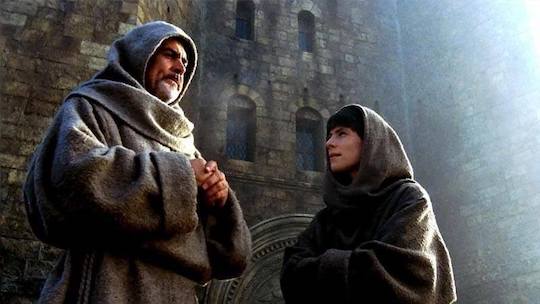Umberto Eco, the famous Italian writer, described in the book The Name of the Rose, the life of an abbey in northern Italy in the fourteenth century. Entangled in an excellent narrative plot, there are several aspects that relate to one another such as the traditions of the friars, the diet that was rich in olive oil, seasoned olives, and stuffed olives.
During the research of the book, in several chapters, references to the gastronomy, agriculture and livestock of the time, as well as the ability to transform food can be found. Thus, it is emphasized that in the abbey there was an olive oil mill where the Extra Virgin Olive Oil was made, both by the monks and by the local villagers of nearby towns. The same process occurred with wine here.
In the same way, in the monastery, by means of ancient formulas, green olives were seasoned, then the filling was done that was subsequently introduced in the olives, after a previous removal of the pits, of course.
On the other hand, he talks about the possessions of nearby villagers, stressing that «a family, in the lands located to the north, can harvest olives with which they obtain no less than half a sack of olive oil.» (About 40 kilos of olive oil)
Olive trees, their fruits and their oil were undoubtedly precious commodities for medieval Italians.
The great critical success and popularity acquired by the novel led to the realization of a homonymous film version, directed by the Frenchman Jean-Jacques Annaud in 1986, with Sean Connery playing the Franciscan William de Baskerville and Christian Slater as his disciple, Adso.

